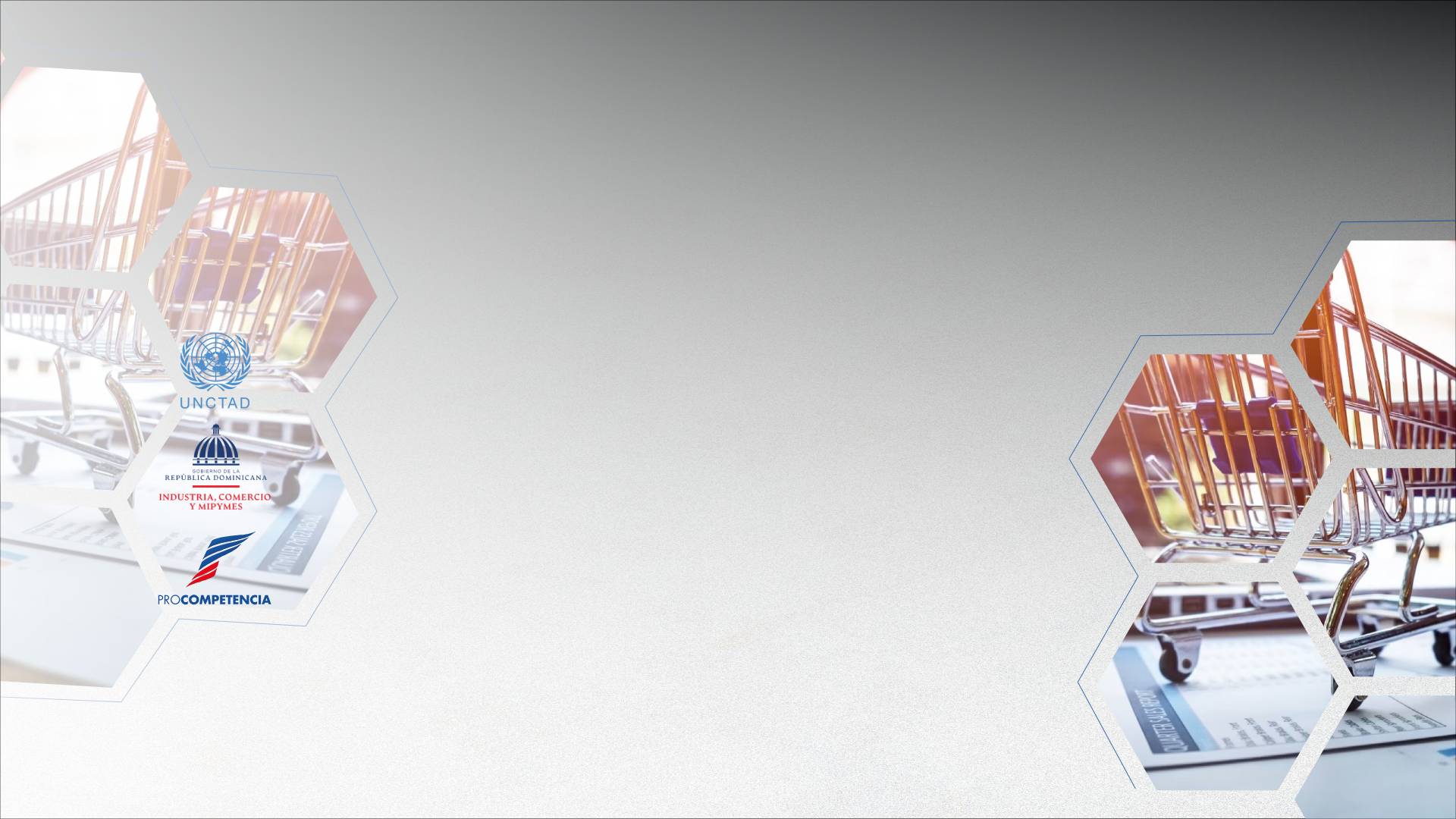
The Working Group on Trade and Competition in Latin America and the Caribbean (WGTC) is a regional forum of trade and competition authorities, created in 2010, for regional cooperation, consultation and coordination in areas of common interest in both areas. Its organisation and operation are mainly under the responsibility of the Permanent Secretariat of SELA and the General Secretariat of UNCTAD, in their capacity as Executive Secretariat and Technical Secretariat, respectively.
The various meetings of the WGTC have addressed a variety of topics in order to consider views and experiences on, inter alia: trade integration; public procurement; energy and hydrocarbon markets; institutional capacity building; competition policy in the telecommunications sector; the benefits of competition policy in the provision of goods and services; the promotion of small and medium-sized enterprises (SMEs); trade facilitation; intellectual property; harmonisation and convergence in regulatory frameworks; and port infrastructure and services.
On this occasion, the members of the group, representatives of the region’s trade and competition bodies, decided to focus the discussion on the Fintech financial sector. This is due to the fact that regulatory, competition and trade policies are fundamental elements for the development and proper functioning of financial markets, especially in the field of financial technologies in Latin America and the Caribbean (LAC). Such policies pursue the following objectives: to promote stability, transparency and efficiency in these markets; to foster innovation and to protect consumers.
In recent years, the Fintech sector has experienced significant growth in LAC, driven by technological advances and changes in consumer preferences. These companies use technology to offer financial services in a more accessible, faster and more efficient way, which has created new opportunities for financial inclusion in the region. However, due to their disruptive and often cross-border nature, Fintechs also pose regulatory challenges. Governments and regulators in LAC have had to adapt their regulatory frameworks to address these new forms of financial intermediation and ensure the stability of the financial system.
In terms of regulatory policies, one of the main challenges is to find a balance between fostering innovation and protecting consumers. On the one hand, it is important to allow Fintechs to develop new products and services that can improve the efficiency and accessibility of the financial system. On the other hand, it is also necessary to establish supervision and control mechanisms to avoid abusive or fraudulent practices.
In this regard, many LAC countries have implemented specific regulatory frameworks for Fintech and have established specialised regulatory agencies to oversee and regulate this sector more effectively. These frameworks usually include licensing requirements, conduct of business rules, cybersecurity measures and consumer protection. In addition to regulatory policies, competition policies also play an important role in the development of Fintech financial markets in Latin America and the Caribbean. Effective competition is essential to ensure that consumers have access to a wide range of financial products and services at competitive prices. To promote competition, it is necessary to remove unjustified barriers to entry, encourage interoperability between different providers and promote transparency of prices and conditions of financial services.
In terms of trade policies, it should be noted that many Fintechs operate at a regional or even global level. Therefore, it is essential to have regulatory frameworks that facilitate cross-border trade and promote cooperation between the different countries in the region. This implies harmonising regulations and technical standards, as well as establishing efficient dispute resolution mechanisms.
In short, regulatory, competition and trade policies are critical for the development and proper functioning of Fintech financial markets in Latin America and the Caribbean. These policies seek to promote stability, transparency and efficiency in these markets, while fostering innovation and protecting consumers. Governments and regulators in the region have implemented specific regulatory frameworks to address the challenges posed by Fintech, seeking to strike a balance between fostering innovation and protecting consumers.
This activity is aimed at focal points in the area of trade and competition of the Member States of SELA, international organisations, experts in this area and special guests.
| Thursday 2 November 2023 | |
| Morning | |
| 08:30 – 09:00 | Opening session
|
| 09:00 – 09:10 | Official photo of the event. |
| 09:10 – 10:50 | Session I. Overview of the Fintech industry and its global impact on financial services markets. Importance of trade and competition to ensure fair and efficient markets.
Moderator: Dominican Republic.
|
| 10:50 – 11:05 | Session for questions, answers, conclusions and recommendations. |
| 11:05 – 12:30 | Presentation of subregional publications on competition. |
| 12:30– 2:00 | LUNCH |
| Afternoon | |
| 02:00 – 04:00 | Session II. Discussion on trade and competition policies for Fintech in Latin America and the Caribbean. Moderator: to be determined (Dominican Republic).
|
| 04:00 -04:30 | Session for questions, answers, conclusions and recommendations. |
| Friday 3 November 2023 | |
| Morning | |
| 08:30 – 11:00 | Session III. Competition and FINTECH
Session III.A. Competition agencies: best practices, case studies and policy recommendations for the (cross-border) Fintech financial sector
|
| 11:00 – 12:15 | Session III.B. Regulatory agencies: development of the legal environment for the supervision of the Fintech financial sector. Moderator: Alejandro Fernández Whipple, Superintendent of Banks of the Dominican Republic.
|
| 12:15 – 12:30 | Session for questions, answers, conclusions and recommendations. |
| 12:30– 02:00 | LUNCH |
| Afternoon | |
| 02:00 – 03:40 | Session IV. Discussion on the right balance between regulation and innovation in Fintech financial markets and the role and scope of competition agencies in Latin America. Moderator: Juan Luis Crucelegui, Chief of Capacity Building and Advisory Services (UNCTAD)
|
| 03:40 – 04:00 | Session for questions, answers, conclusions and recommendations. |
| 04:00 – 04:30 | Proposed theme and venue for the XII Meeting of the WGCC in 2024 |
| 04:30 – 05:00 | Closing session
|
